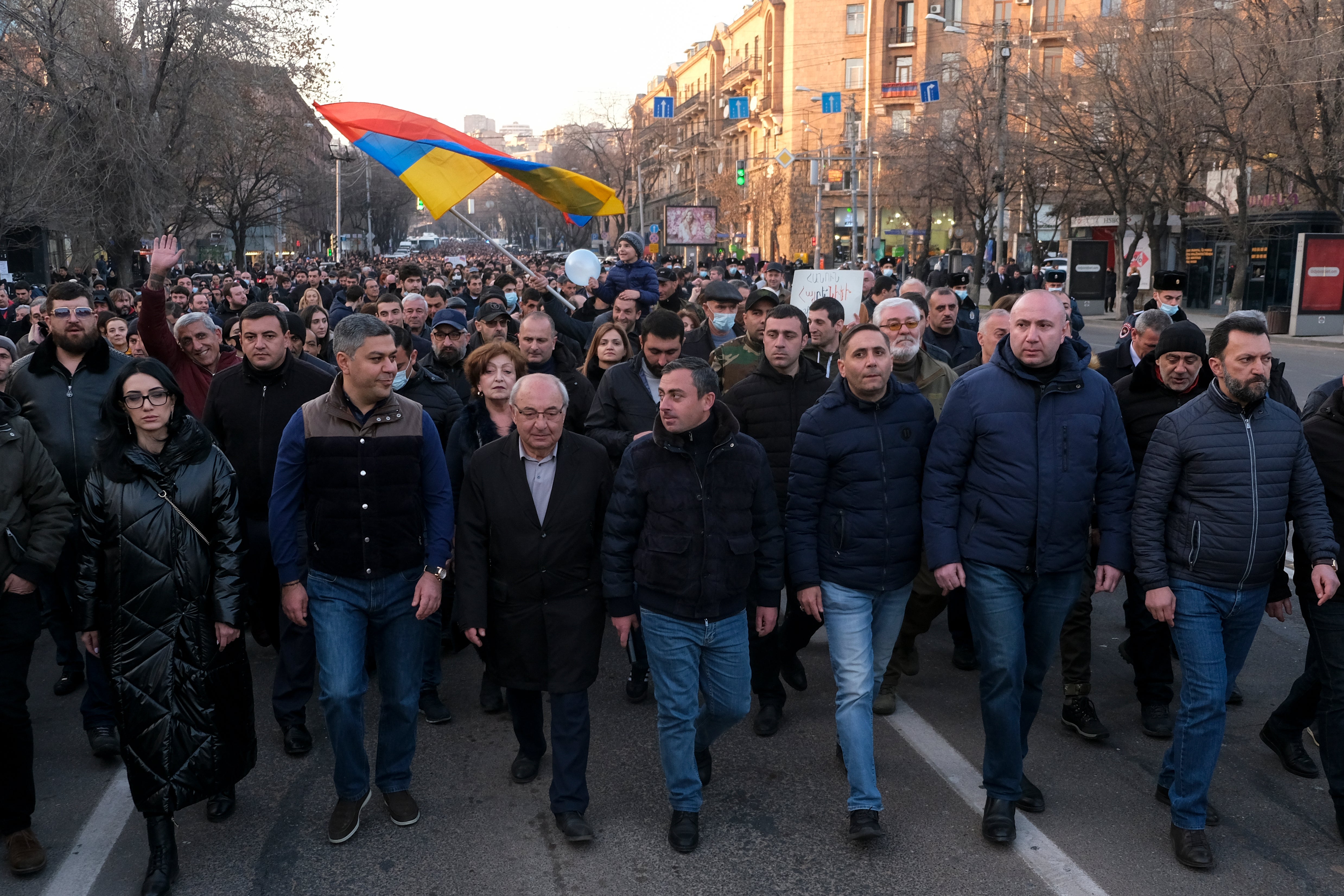Armenia's president refuses order to dismiss military chief
Pressure on Armenia's prime minister has intensified after the country’s president rejected his order to dismiss the chief of the military general staff

Your support helps us to tell the story
From reproductive rights to climate change to Big Tech, The Independent is on the ground when the story is developing. Whether it's investigating the financials of Elon Musk's pro-Trump PAC or producing our latest documentary, 'The A Word', which shines a light on the American women fighting for reproductive rights, we know how important it is to parse out the facts from the messaging.
At such a critical moment in US history, we need reporters on the ground. Your donation allows us to keep sending journalists to speak to both sides of the story.
The Independent is trusted by Americans across the entire political spectrum. And unlike many other quality news outlets, we choose not to lock Americans out of our reporting and analysis with paywalls. We believe quality journalism should be available to everyone, paid for by those who can afford it.
Your support makes all the difference.About 15,000 protesters calling for the resignation of Armenia’s prime minister marched through the capital Saturday as pressure on the leader intensified after the country's president rejected his order to dismiss the chief of the military general staff.
Protests against Prime Minister Nikol Pashinyan arose in November after he signed a cease-fire ending a six-week war with Azerbaijan over the separatist territory of Nagorno-Karabakh. The agreement saw Armenia lose control of territories in Azerbaijan it had held for more than 25 years.
Top military officers this week joined in demanding Pashinyan’s resignation, a move that he called an attempted coup. He ordered the dismissal of the chief of the general staff, but the order was subject to approval by Armenia's largely ceremonial president.
President Armen Sarkissian sent the order back to Pashinyan on Saturday, saying he could not give approval because he considered parts of the decree to be in violation of the constitution. It was not immediately clear if Pashinyan would try to revise the order.
At the protest rally, opposition politician Naira Zograbyan, who once was a journalist at a newspaper owned by Pashinyan, denounced the prime minister.
“This is not a military coup. This is a revolution of thought, reason, love, which will win,” she said.
The political crisis is being watched closely, particularly in Russia and Turkey, which compete for influence in the South Caucasus region.
The South Caucasus has strategic importance as a bridge between Europe and Asia and major pipelines transporting Azerbaijani oil to the West pass through the region.